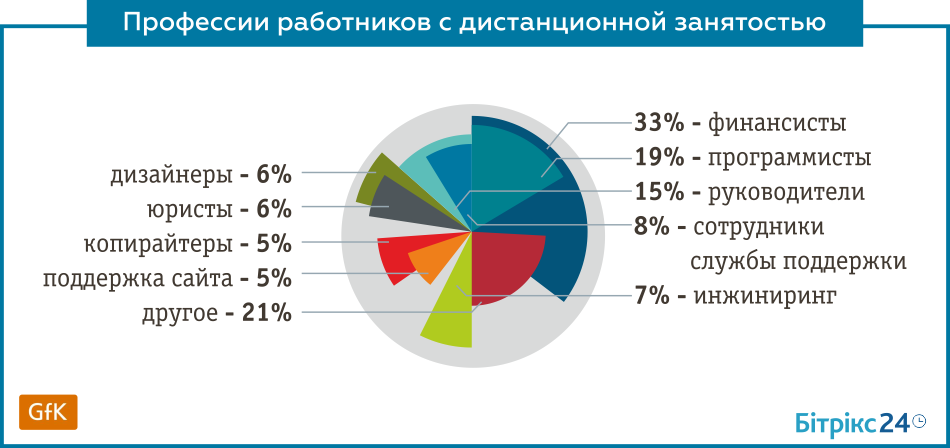What is the difference between freelancing, teleworking, contracting, outsourcing, outstaffing and subcontracting?

People often confuse freelancing with outsourcing, outsourcing, tiffany with turquoise, white with avery, etc., including us. Especially the last. In order not to evoke the fepalm reaction, the international freelance platform for language professionals 2Polyglot.com decided to dot the “E”.

All these concepts are closely linked, it is not surprising that many sometimes replace concepts. I confess that we ourselves have sinned. Ordinary office work is gradually starting to lose ground due to job cuts. Specialists in modern times have to learn new skills and stock up on new knowledge, so as not to drop out of the race for earnings. The familiar concept of “succession” has many branches and nuances. As a result, new terms are born with the old meaning. The cleaning ladies retrained as cleaning managers, and the salespeople became sales managers. But time is inexorable and it requires the ability to distinguish between similar types of concepts.
')
Find 23 differences: remote work, freelancing, outsourcing and outstaffing
What is freelancing?

Freelance is a form of work organization in which the worker is an independent specialist, i.e. He is not a full-time employee of any company, and, as a rule, has several employers at the same time (although most often it is just the opposite). The freelancer performs a specific task related to a project, but is not responsible for the project as a whole, for example, translation of the text , article writing , design development, etc. This is a bird of free flight, which flies to where more is given. This is in most cases an honest hard worker who will work out exactly as much for how much he was paid. He does not take too much for the promotion of the brand, “and I also finished the MBA” or “may I leave early today.” Here the rule “time is money” is the main head of such a specialist. This is a man-businessman who often does not declare his income and who “in the coffin I saw them all with their taxes”. Freelancing is characterized by high competition among performers and a low level “sorry, the supplier delays raw materials”. Here a man values his name more than money. His name is his money. He alone is responsible for his shoals, and the proximity of the deadline frightens him more than the closeness of his own demise.
What is remote work?

Remote work - these are the same eggs as regular office work for hire, only in profile. The only difference is in the workplace and dress code. The dress code for a remote person usually consists of a “three” suit: socks, families and a white T-shirt with a fat spot. A remote employee is a full-time employee and has one permanent employer (here, too, it is most likely the opposite). Here, workdays are the main measure of work efficiency, and an open tab with a little pause on a pause and a cooled cup of coffee is a workload. A remote employee enjoys all the benefits of being on the company staff except for table football and freebies. But he more than covers these shortcomings by the lack of the need to buy clothes and pay for travel in close public transport. Communicating with a team exclusively online for a remote operator often climbs sideways during corporate events - they simply forget to invite him there. A remote employee is responsible for all the work within his competence. In the case of lazhi, he should always have an iron excuse and a lever for moving the shooter in his arsenal, otherwise he risks losing his job or losing his prize. The employer saves money in workplaces and office equipment, and a remote employee saves nerves in communicating with annoying colleagues outside of work. Although for many it may be a disadvantage. The lack of personal communication with the team - this is the main disadvantage of work remotely.
What is outsourcing and subcontracting

Outsourcing is a buzzword that simply means in a row. An outsourcing company is a contractor who performs at exorbitant prices what a freelancer will do for $ 20. But with all the accompanying papers, stamps, reports and guarantees. Then who has how much money and who needs what: work done or work done with pieces of paper. To outsource a job is to sign a contract with a third-party company to perform any work on a long-term or permanent basis. Subcontracting differs from outsourcing only by a shorter period of work and limitation of duties within a specific order. Simply put, a subcontractor is a freelance company, and an outsourcing company is a freelance employee.
What is outstaffing

Another representative of the “contract-legged” type. Outstaffing involves hiring an employee who is actually a full-time employee of another company. Not to be confused with poaching. This, so to speak, “honestly borrowed for a while, but didn’t turn my head at all, so I give it back”. This is a specialist's sublease from another company without transferring it to your staff. No, this does not mean that in another company this employee was engaged in something very serious, then free time appeared and the employer allowed him to
Conclusion

Interestingly, many outsourcing companies are actively using the services of freelancers. This is done in order not to abandon lucrative contracts in the absence of the necessary specialists in the state. For example, translation bureaus often cooperate with freelance translators , calling them one price, the customer another, and taking the difference. As you can see, all roads lead to freelancing. This term came before the aforementioned: even in the novel “Ivanhoe” by Walter Scott, mercenary spearmen were called freelancers. In essence, a remote employee is a full-time freelancer, outsourcers and subcontractors are freelance companies, and outstaffers are freelance agencies. So why pay more?
Source: https://habr.com/ru/post/300046/
All Articles